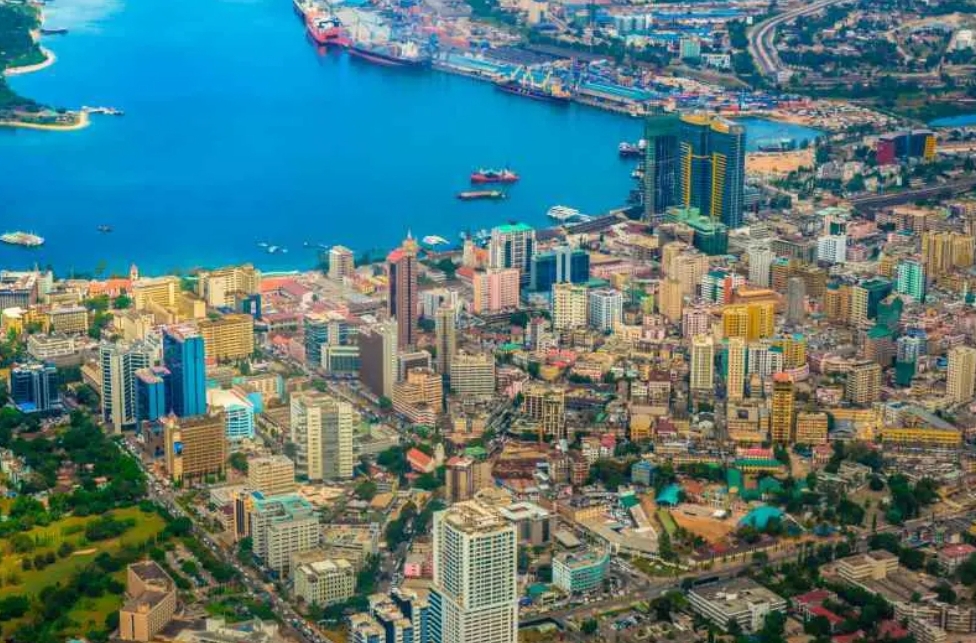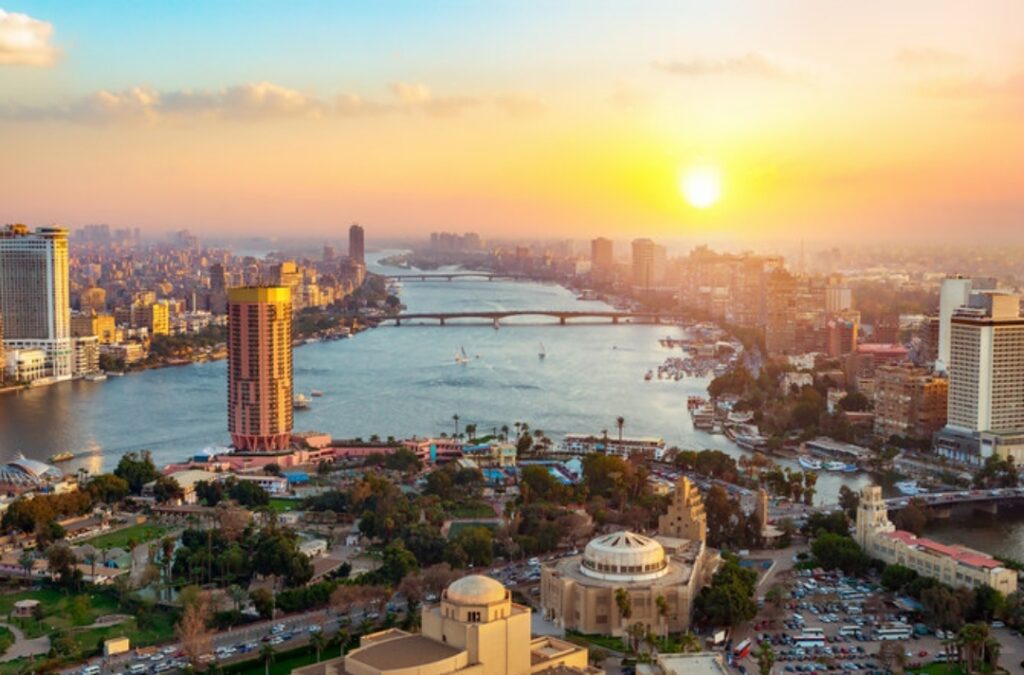Africa, with its vast natural resources and growing economies, is a continent of immense potential. In this article, we will explore the top ten richest African countries based on three key indicators: Gross Domestic Product (GDP), Gross National Income (GNI), and GDP per capita. These metrics provide a comprehensive view of a country’s economic wealth, taking into account the overall size of its economy, the income generated by its residents, and the average income per person.
By examining these indicators, we can gain valuable insights into the economic performance and living standards of the citizens in these African nations. However, let’s explore the economic successes of the top 10 richest African countries based on their GDP, GNI, and GDP per capita.
Top 10 Richest African Countries By GDP Rankings

1 Nigeria
Topping the list is Nigeria, Africa’s undisputed heavyweight champion. As the continent’s largest oil producer, Nigeria enjoys a dominant position in the global market. With a young and vibrant population, along with a rapidly expanding tech sector, Nigeria’s economic future looks bright and promising. Its GDP in 2023 is projected to reach $440,834 million.
2 South Africa
Known as the rainbow nation, South Africa is Africa’s most industrialized country. With a diversified economy focused on mining, manufacturing, and the service sector, South Africa showcases the economic potential of the continent. Its GDP in 2023 is projected to reach $419,015 million.
3 Egypt
Steeped in history, Egypt boasts a robust economy that rivals its grand pyramids. With a strong foundation in tourism, agriculture, and the energy sector, Egypt continues to captivate the world both culturally and economically. Its GDP in 2023 is projected to reach $404,143 million.
4 Algeria
Rich in natural resources, Algeria’s economy is primarily driven by oil and gas exports. As the largest country in Africa, it holds significant untapped potential for further economic diversification. Algeria’s GDP in 2023 is projected to reach $163,044 million.
5 Morocco
Serving as a gateway between Europe and Africa, Morocco has a diverse and flourishing economy. With a strong focus on the automotive, aerospace, and renewable energy industries, Morocco is steadily climbing the economic ranks. Its GDP in 2023 is projected to reach $142,866 million.
6 Ethiopia
Emerging as a modern economic powerhouse, Ethiopia’s ambitious infrastructure projects and focus on agriculture have contributed to remarkable GDP growth. As the land of ancient civilizations, Ethiopia’s future holds great promise. Its GDP in 2023 is projected to reach $111,271 million.
7 Kenya
As East Africa’s economic epicenter, Kenya is soaring to new heights. With a thriving service sector and a hub of innovation and technology, Kenya’s youthful and educated workforce is propelling its impressive upward trajectory. Its GDP in 2023 is projected to reach $110,347 million.
8 Ghana
Known as the Land of Gold, Ghana’s rich resources in gold, oil, and cocoa have fueled its steady economic growth. With political stability and ongoing development projects, Ghana’s future looks bright. Its GDP in 2023 is projected to reach $77,594 million.
9 Ivory Coast
Driven by thriving cocoa and coffee production, the Ivory Coast is a West African powerhouse. Its recent push toward industrialization is contributing to its expanding GDP. Its GDP in 2023 is projected to reach $70,043 million.
10 Tanzania
Blessed with natural beauty and resources, Tanzania’s booming tourism industry and growing agricultural sector make its economy worth watching. Its GDP in 2023 is projected to reach $67,404 million.
Evaluating African Economies: Gross National Income (GNI) per Capita

When comparing the wealth of countries, Gross National Income (GNI) per capita provides a more accurate measure by accounting for international business activities. This metric helps circumvent inflated figures often seen in GDP rankings, providing a clearer picture of a nation’s wealth. We will explore the top ten richest African countries based on their overall GDP, taking into account GNI per capita.
1 Egypt
With a GDP of $1.39 trillion, Egypt claims the top spot in terms of overall GDP. However, when considering GNI per capita, which accounts for income generated both domestically and internationally, Egypt’s ranking may differ. It is important to note that GNI per capita figures are not provided in the given information.
2 Nigeria
As Africa’s largest oil producer, Nigeria boasts a GDP of $1.15 trillion. However, when evaluating GNI per capita, Nigeria’s ranking might change. Unfortunately, GNI per capita figures are not provided in the given information.
3 South Africa
With a GDP of $868.58 billion, South Africa is a key player in the African economy. As Africa’s most industrialized nation, it showcases a diversified economy. However, without GNI per capita figures, we cannot accurately determine its wealth on a per-person basis.
4 Algeria
Algeria’s GDP of $535.80 billion is primarily driven by oil and gas exports. However, to gain a comprehensive understanding of Algeria’s wealth, it is crucial to consider GNI per capita, which is not provided in the given information.
5 Morocco
With a GDP of $333.24 billion, Morocco’s diverse economy is flourishing. However, without GNI per capita figures, we cannot accurately assess its wealth on an individual level.
6 Ethiopia
Ethiopia’s GDP of $306.45 billion showcases its remarkable growth driven by ambitious infrastructure projects and a focus on agriculture. However, without GNI per capita figures, we cannot determine the wealth of individuals within the country.
7 Kenya
Kenya’s GDP of $276.22 billion highlights its position as East Africa’s economic hub. However, to gain a more precise understanding of its citizens’ wealth, we would need GNI per capita figures, which are not provided.
8 Angola
With a GDP of $223.97 billion, Angola’s economy is heavily reliant on oil exports. However, without GNI per capita figures, we cannot assess the wealth of its citizens accurately.
9 Ghana
Ghana’s GDP of $196.05 billion is fueled by its rich resources in gold, oil, and cocoa. However, to understand the economic well-being of Ghanaians, we would need GNI per capita figures, which are not available.
10 Sudan — $185.64 billion
The Wealthiest African Countries by GDP per Capita

Gross Domestic Product (GDP) per capita is a widely used indicator to measure the wealth and economic well-being of a country’s population. We will explore the top ten richest African countries based on their GDP per capita, as announced by the World Bank. These figures provide insights into the average income and living standards of the citizens in these nations.
1 Seychelles
Seychelles tops the list as the wealthiest African country with a GDP per capita of $14,653.3. This island nation’s economy thrives on tourism, fisheries, and offshore financial services, contributing to its high average income.
2 Mauritius
With a GDP per capita of $9,106.2, Mauritius secures the second spot. Known for its strong financial services sector and economic diversification, Mauritius has consistently maintained a high standard of living for its citizens.
3 Gabon
Gabon, with a GDP per capita of $8,635.3, stands among the wealthiest African nations. Its economy heavily relies on oil production, which has contributed to its relatively high average income.
4 Equatorial Guinea
With a GDP per capita of $7,506.7, Equatorial Guinea showcases its wealth driven by oil and gas reserves. Despite its small population, the country’s natural resource wealth has allowed for a higher average income.
5 South Africa
South Africa, the continent’s most industrialized nation, boasts a GDP per capita of $7,055.0. Although income inequality remains a significant challenge, South Africa’s diversified economy and well-developed infrastructure contribute to its relatively high average income.
6 Botswana
Botswana, with a GDP per capita of $6,805.2, is known for its diamond mining industry. The country’s prudent management of its mineral wealth and investment in education and healthcare have contributed to its high average income.
7 Libya
Despite recent political instability, Libya still holds a relatively high GDP per capita of $6,357.2. Its vast oil reserves have historically fueled economic prosperity, resulting in a higher average income for its citizens.
8 Namibia
Namibia, with a GDP per capita of $4,856.6, showcases its wealth through mining, agriculture, and tourism. Despite income disparities and challenges of poverty, the country’s natural resources contribute to a relatively higher average income.
9 Eswatini
Eswatini, formerly known as Swaziland, has a GDP per capita of $3,978.4. Agriculture, manufacturing, and services sectors drive the country’s economy, contributing to a moderate average income for its citizens.
10 Tunisia
Tunisia, with a GDP per capita of $3,807.1, completes the list of the richest African countries. Its diversified economy, including manufacturing, tourism, and services, has contributed to a relatively higher average income compared to many other African nations.

